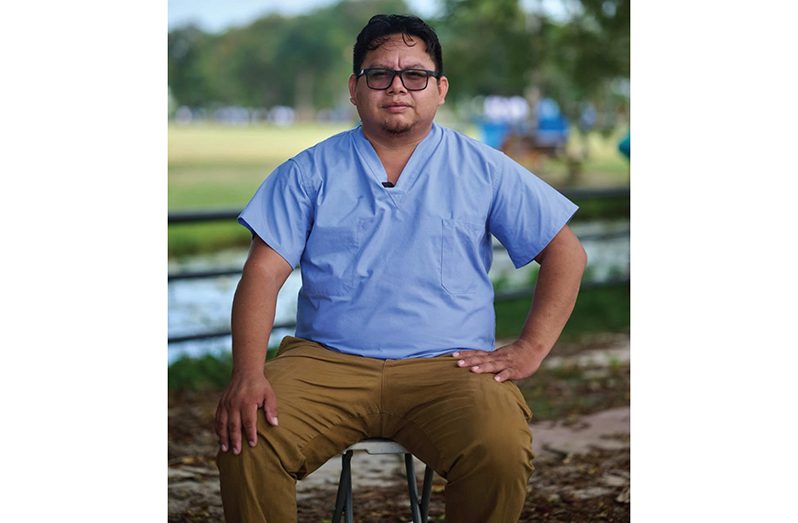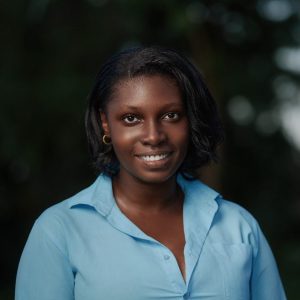DR Stephon Henry has come a long way from his humble beginnings in a small community in the Rupununi. A general practitioner turned psychiatrist, he hails from one of the few remaining Macusi-speaking villages in the region.
Despite the distance and decades that separate him from his roots, Dr. Henry proudly embraces his heritage, which remains a vital part of his identity. Now a champion for mental health care accessibility, he is committed to ensuring that treatment reaches not only central Georgetown, but also the remote communities such as the one he calls home.
Born and raised in the south-central area of the Rupununi, a young Dr Henry was ambitious. With a drive and passion for education, he took his educational endeavours very seriously, wanting to work in healthcare from the time he was a boy. This drive for excellence may have been generational as well, with a few of his other siblings making the move to study in Georgetown before he did. Recounting the memorable parts of his childhood, Dr Henry shared that traditional food was a big part of his home and who he is today. “Where I grew up is the only Macusi-speaking village in South-Central. In terms of our culture, it’s pretty similar to other villages. Even now, I can’t do without farine or cassava bread—it has to be there at some point. The Brazilian music also had a lot of influence in my house.” He said.
After his secondary education, Dr Henry was sure that he wanted to follow along the path of healthcare, but he was not sure how he would get there. That was until the chance to become a doctor came along. As he said, it was an opportunity he just could not give up.” I finished school, and then the opportunity to become a doctor came up, and I couldn’t let that slide because it was one of my dreams as a kid. I applied and got through to go to Cuba. I spent seven years there and graduated as a general doctor in 2013,” he stated.
Dr Henry worked as a general practitioner for a year, moving through various hospitals and clinics around the country. Although a great experience, he sought to have a speciality and wanted to move into a field that would allow him to help people uniquely. He wanted to champion the importance of the often-overlooked and stigmatised issue of mental health. Initially, he gained some pushback about choosing psychiatry, but he persevered regardless and soon gained his Master’s in the field he was so passionate about. “After working for a year and doing various rotations, I decided I couldn’t be a general doctor for long. I chose psychiatry. A lot of people told me I shouldn’t do it, but I felt it was something I could make a difference in. I started the Master’s in Psychiatry programme in 2016 and passed in 2019. Since then, I’ve been working with the TPSU, doing satellite clinics all over Guyana,” he said.
But, Dr Henry’s journey to success was marked by quite a few challenges. One of these has been tackling the constant misconception that is being thrown at him as a young Indigenous doctor. A champion for Indigenous people in his own right, Dr Henry is dispelling and disproving harmful stereotypes. The only way he knows how is by being living proof of the success of his people. “One of the things I grew up with is that people think we are from the bush. But we have Indigenous lawyers, doctors, nurses, and policemen. We are everywhere now. It shows that if we are given the opportunity, we can make it far. And we are making it far,” he said.
Dr Henry has made it so far that he often returns to his community. Looking at the healthcare aspect of Guyanese communities, Dr Henry shares that there are many mental health challenges present in communities nationwide, not just in the populated, well-known areas. “There are a lot of mental health issues in the community—depression, anxiety, psychotic illnesses. Not everyone with a mental health illness is crazy. If you come to seek help for a mental illness, it doesn’t mean you’re crazy. We at the TPSU are always willing to help, and we encourage people to reach out for assistance.” He said.
As Guyana celebrated yet another Indigenous Heritage Month, Dr Henry sees this month as a significant step in connecting cultures and an opportunity to do more than just observe. But it is a chance for Guyanese to support and learn from each other and gain just a little bit more appreciation for one another. “This month is very important. It’s a time to bring everybody together and showcase our talents and culture. We share it with our fellow Guyanese so they can learn to appreciate it more. That’s what this month is about—celebrating and appreciating our heritage,” said Dr Henry.












